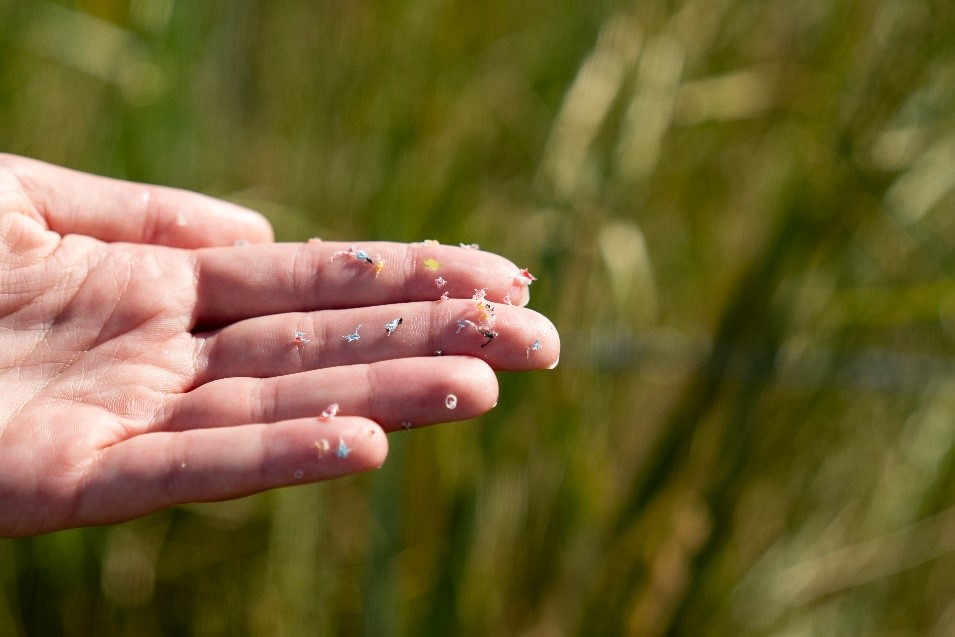News
Launch of 7 new projects for research into microplastics

With new grants totalling € 2,100,000 from ZonMw, 7 new breakthrough projects will start. These projects will do further research into microplastics and nanoplastics within 4 different themes, and will collaborate with the MOMENTUM 2.0 consortium that received follow-up funding earlier this year.
The 7 new breakthrough projects will try to find answers to the most urgent questions from the knowledge agenda ‘What do microplastics do in our body?’ (2020) (in Dutch). In 2025, this must yield new knowledge and insights for a provisional risk analysis about the effect of microplastics on our health.
Each project focuses on one of the following themes: microplastics in the environment, consumer behaviour, interventions, and standardised research methods.
The following projects have been awarded funding:
Theme 1: Microplastics in the environment
- The Food for thought study takes a look at microplastics in the soil that end up in crops. Researchers will measure the quantity of plastic particles in plants and herbivores, and investigate whether these microplastics can be transferred to humans via the food chain.
- The project MLIdent will develop a more robust approach for the improved measurement and characterisation of microplastics and nanoplastics in different matrices, such as blood.
- The project (Micro)2 corona will study the effect of biocorona on the uptake of microplastics in the human gastrointestinal tract. These biocorona are formed when molecules in our food, stomach and intestines adhere to plastic particles.
Theme 2: Consumer behaviour
- Microplastics and Citizens: In this project, researchers will identify psychological factors that encourage people to cause the production of fewer microplastics or to protect themselves from microplastics. The team will subsequently develop an intervention that helps people to do this.
Theme 3: Interventions
- The FLES study will measure microplastics in breast milk and baby formula. Researchers also investigate which infant feeding bottles and preparation techniques result in babies consuming as little microplastics as possible.
Theme 4: Standardised research methods
- ATHENA will develop a quality assurance and quality control (QA/QC) screening tool and implement a data alignment tool. These tools standardise data about the exposure to and effect of microplastics. This will enable the use of different data sources to estimate the risks of microplastics for humans.
- Py-Harmony: In this project, the researchers will develop an improved method to measure and identify microplastics and nanoplastics in various environmental compartments, such as soil, water and air. The research will focus on plastic particles smaller than 10 micrometres.
Focus on collaboration
In 2018, the ZonMw programme Microplastics & Health funded 15 breakthrough projects and these led to the formation of the MOMENTUM consortium. The results revealed that microplastic and nanoplastic particles from our environment can end up in the human body, where they could cause disruptive effects, for example on our immune system.
However, much remains unknown about the effects of microplastics on human health. Therefore, the Ministry of Health, Welfare and Sport and the Ministry of Infrastructure and Water Management requested ZonMw to provide a follow-up to the funding programme Microplastics & Health.
From this follow-up funding programme, we awarded funding to MOMENTUM 2.0 earlier this year. Over the next 18 months, the 7 new breakthrough projects will work together with each other and with the MOMENTUM consortium, and they will jointly develop a provisional risk analysis for human health and the appropriate possible solutions.
Microplastics and the living environment
Microplastics and health is part of the ZonMw-wide subject Healthy living environment. Everybody intuitively understands what a healthy living environment is. People link this concept to healthy behaviour, a clean environment and sustainable housing, for example. In recent years, ZonMw has facilitated various studies that advance a healthy living environment. In this context, research into the influence of microplastics on health is a new and rapidly growing research field for which long-term research funding can make a real difference.
Image: ZonMw




